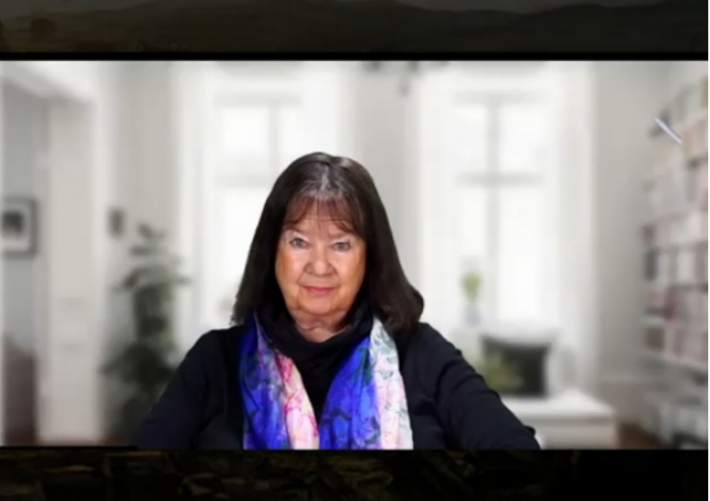May 18 (EIRNS)–CGTN conducted an interview on May 17 with Helga Zepp-LaRouche on the centenary of the Communist Youth League. The video with a short description by He Yuhan is available here. {Here is the transcript:}
Q: What is the youth’s role in the Chinese dream of national rejuvenation?
HELGA ZEPP-LAROUCHE: Well, yes, I was for the first time in China in 1971, and this was in the middle of the Cultural Revolution. The situation was so different. People were poor, they were not happy, they lived in a tremendous tension all the time. But even then, people were telling me how much improved the situation was compared to before the founding of the People’s Republic of China in 1949.
Now when I was there, it was just announced that Henry Kissinger had arrived. This was a big, big news, and as we now know, this led then to the historic visit of President Nixon one year later. The situation was, there was not much development. Thousands of bicycles for one car; people were still travelling over dirt roads. I went to Beijing; I saw the Summer Garden painted all in red color by the Revolutionary Guards. Because I saw China as it was then, and I was able to speak to a lot of people also in the countryside. Around Shanghai and Xintao, there were a lot of people who either spoke German or English. But since I had this experience, I think I can say with my own experience, I can testify to the enormous development China has made, which in one sense is unparalleled in the whole world. I think this is very important, because what counts for the identity of a person, especially also a young person, is not so much the condition as you have it at that moment, but it is the vector of development. If the vector of development is upward, then people become optimistic. I can say that also because I see certain parallels to the situation with the German economic miracle which was the reconstruction of Germany after the Second World War, which is why the generation which grew up then was and is still much more optimistic than many of the young people in Germany today.
But in China, because there was this extremely successful development, I have found that young people have been incredibly optimistic, and therefore, when I ask people, “What do you want to become?” They say, “I want to become an astronaut,” or “I want to go and help to build up Africa.” So, I think this is really a very good condition, and I think that therefore the young people in China have a very important historic mission.
I mean at that time, naturally China was very closed, and when I as a young journalist had the opportunity to make this visit, I was all enthusiastic, and I think that curiosity is something I would wish that every young person should have. Because if you want to explore the world when you are young, that’s really the best time to do it. I’m so grateful I did that, because it did shape the rest of my life in so many ways, because one of the experiences of this trip was also that I saw in other countries the under-development of Africa, of certain Asian countries. That motivated me greatly to do as much as I can to get to a new more just world economic order.
Q: What are the unique characteristics and attributes of China’s contemporary youth?
ZEPP-LAROUCHE: I think it’s the environment which is very favorable to the development of young people in China, because when the society gives you the idea that every newborn child is welcomed, and is welcomed because it has a unique creative potential which enriches the common good of society as a whole, this has a very important impact on the formation of the personality. I’m contrasting that, for example, with the Green ideology in Germany, which is not the same like being careful for the environment in China, but in Germany it’s a complete negative ideology. You have the idea that every child and every person is a burden on nature, and therefore, the fewer people there are, the better. There are even books in Germany which say it’s better for the environment not to have any children at all. Now that’s naturally leading to the end of society pretty quickly. But fortunately, in China it is not like that, and I have seen that both in 1971 when I visited, I went to a lot of these children’s palaces, which were devoted to the education of younger children. They were learning how to dance, ballet, sports, gardening, agriculture. I think that that idea, that the aim of education is excellence, I have seen on the many visits I have made to China ever since. I think the result is that China has become an enormously productive society, and I think that speaks for itself.


















